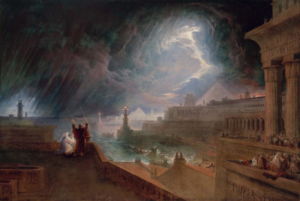Jesus utilizes this quotation from the Prophet Hosea (6:6) during a controversy He has with the Pharisees over Sabbath laws. Our Lord wanted to demonstrate how empty the Pharisees’ blind adherence to the letter of the Law actually was and show that this same Law, along with the writings of the Prophets, were intended for something much deeper than mere ritualistic behavior.
So just what was Christ saying? The key word is obviously “mercy.” The original Old Testament word used in this instance is chesed, which is translated as mercy and usually means compassion towards sinners or the action of God withholding His wrath. This word in Hebrew, however, is pregnant with meaning. It is often used to describe the Lord’s favor, yet can also be interpreted as kindness or, more aptly, “loving-kindness.”
Unfortunately, one difficulty we find is a continued narrowing of this word mercy in our translations. It almost seems as if this term is now restricted to a legalistic uses, i.e. specific acts of charitableness and the withholding of punishment. It is evident that the scope and meaning associated to this word was far broader in the past. When Jesus used it, mercy undoubtedly held far greater meaning than what we have limited it to in English.
The Pharisees could not comprehend Hosea’s chastisement any more than they could rightly understand the higher purpose of the Law. Jesus accuses them of extreme hypocrisy: adherence to form while omitting the substance, feigning allegiance to the Lord while practicing idolatry in their hearts. In essence, the Pharisees tried to do the right thing, but without an iota of love in their hearts.
Christ intimates that the Pharisees were not pleasing God by their rituals and sacrifices because they held no real mercy or compassion for their fellow man. The Pharisees remained highly critical and judgmental towards the failures of others and had no consideration for the weak. They thought themselves holier than everyone else, which in God’s eyes is a detestable trait.
The above verse you inquired about correlates directly to the higher gospel message of love: “A New Commandment I give to you, that you love one another; even as I have loved you, that you also love one another” (St. John 13:34); something we each should practice during this Advent season.






